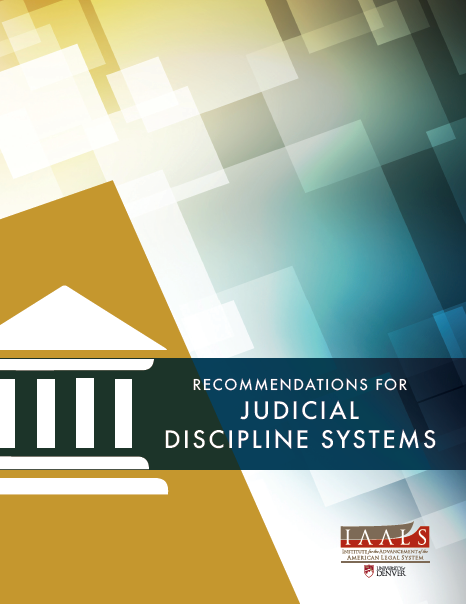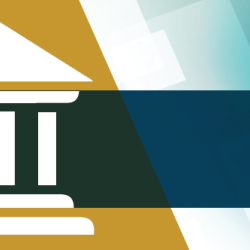Not Above the Law: IAALS Provides New Recommendations for Judicial Discipline
Public trust and confidence in our judiciary, and our judges, is vital. Yet, over the last several decades, that trust has been eroded. For people to trust judges again, we must ensure a series of pillars are in place:
- Improved ways of selecting judges;
- Improved ways of evaluating judges’ performance; and
- Improved systems for disciplining judges who abuse their power—which is the subject of a new IAALS report.
First, it matters how the judges are chosen and whether people believe they are well qualified at the outset. To that end, IAALS promotes our O’Connor Judicial Selection Plan, a research-based model for how states should select judges—a nonpartisan process that centers around court nominating commissions.
Second, the public’s trust hinges on an element of accountability post-selection, like a job performance evaluation. IAALS therefore recommends judicial performance evaluation—another component of the O’Connor Judicial Selection Plan—and we have dug deeply into this area over the years by developing evaluation tools for trial and appellate court judges and recommendations for those who evaluate judges.
 IAALS turns now to another important pillar, which has gained even more visibility over the last couple years: judicial discipline. The public must have confidence that judges who misbehave in office, who abuse their power or who undermine the justice system, are not above the law and will be disciplined. The American legal system and our judges are not immune to the #MeToo movement; judges, like other people in positions of power, have resigned because of allegations that they have harassed people in their employ. So, IAALS determined that we needed to better understand how judicial discipline systems work and provide suggestions for improving them.
IAALS turns now to another important pillar, which has gained even more visibility over the last couple years: judicial discipline. The public must have confidence that judges who misbehave in office, who abuse their power or who undermine the justice system, are not above the law and will be disciplined. The American legal system and our judges are not immune to the #MeToo movement; judges, like other people in positions of power, have resigned because of allegations that they have harassed people in their employ. So, IAALS determined that we needed to better understand how judicial discipline systems work and provide suggestions for improving them.
With the help of Keith Swisher, Professor of Legal Ethics at the University of Arizona Law School, we compiled information and analyses about systems across the country and then convened a diverse group of stakeholders to discuss them: members of judicial discipline commissions, executive directors of those commissions, judges, lawyers, and academics. Armed with our research and with their own experiences, the group engaged in a two-day conversation about judicial discipline systems.
The report we release today is the result of this research and collaboration, finalized by IAALS in coordination with Keith Swisher and Russell Wheeler, Visiting Fellow, Governance Studies, at the Brookings Institution. In it, we make recommendations for judicial discipline systems that are designed to achieve a balance between transparency and accountability, confidentiality and trustworthiness—all with the goal of enhancing public trust and confidence in the judges of this nation.
We are grateful to the Sturm Family Foundation for the funding that allowed us to take on this work—and we hope that the recommendations are useful to those who run, participate in, or are observers of state judicial discipline systems.





